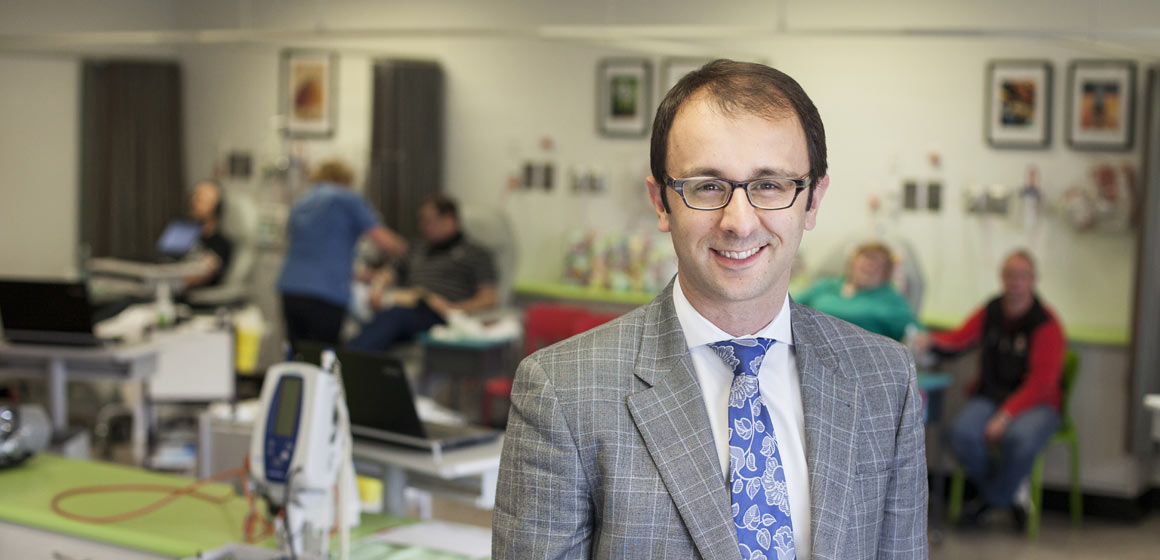
New blood tests using the latest genomic technologies may provide a better way to assess treatments for advanced rectal cancer.
Dr Christopher Jackson has received a research grant that will strengthen collaborative links between health-care professionals and University of Otago researchers looking for insights into a common and aggressive cancer.
In mid 2014, Jackson received a Health Research Council Emerging Researcher First Grant for his research, which will focus on developing new “strongly evidence-based” strategies for managing advanced rectal cancer by using the latest in genomic technology to assess and predict response to chemotherapy treatments.
Jackson describes current methods of detecting response to cancer treatment as relatively crude and blunt – it can often take months to determine whether a particular treatment is working. Central to the project will be the use of new blood-test technology to collect and assess the cancer's circulating tumour DNA.
Jackson hopes the cancer-specific blood tests could supersede the current methods of detecting response which are largely based on expensive, imprecise and infrequent imaging studies such as CT and MRI scanning. Blood tests could provide a real-time assessment of the cancer's genomic evolution and response to therapy.
The need for such technology is readily apparent in New Zealand, which has the world's third highest colorectal cancer rate.
“Rectal cancers present with symptoms such as bleeding, pain and a change in bowel habit. As well as having symptoms from the primary tumour, there may be secondaries present as well. The treatment for the tumour in the rectum may need to be very different for the treatment of the secondaries, so it becomes a balancing act for doctors. The answer may lie in identifying the best strategy for treating both at once.”
The overall strategy for managing metastatic rectal cancer will also be assessed. “The treatment of advanced rectal cancer can involve chemotherapy, surgery and radiotherapy; this study aims to find the best way of managing the problem at a clinical level,” he says.
“Our big advantage is the close relationship between the hospital and the University network of cancer clinicians. We are working with research scientists in a structured and systematic way – making the most of the collaborative opportunities New Zealand has to offer. Also, patients in the Otago-Southland region are extraordinary in their willingness to participate in research studies.”
Jackson hopes the research enabled by the three-year grant – based on preliminary data from 15 patients – will provide enough information to launch a major national programme. If validated, later findings from clinical trials could have applications for other cancers, he says.
He will work with Professor Parry Guilford (Biochemistry), Professor of Surgery John McCall and Associate Professor Mark Thompson-Fawcett (Surgery).
2014 HRC Emerging Researcher first grants
Funding
- Health Research Council Emerging Researcher First Grant